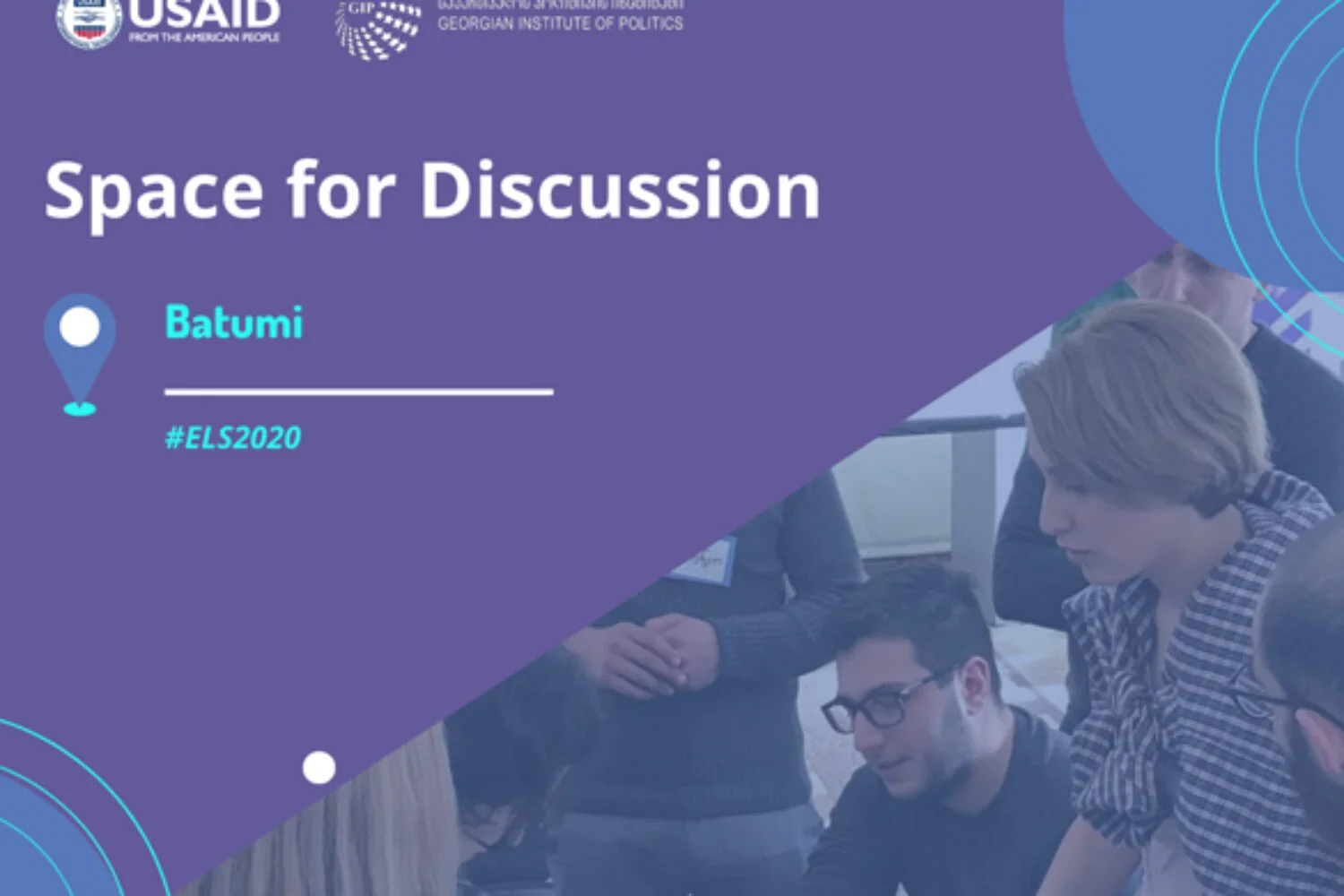On April 30th, the second event of the Space for Discussion was held in Batumi. New series of meetings – Space for Discussion has been launched under GIP’s ongoing project “Promoting Youth Transformational Leaders in Georgia”. Space for Discussion is an additional opportunity for the “Emerging Leaders School” (ELS) participants to meet the experts from different fields as well as public and private sector representatives. The participants choose the discussion topic themselves and have an opportunity to get the answers to the questions of their interest from the invited professionals and decision-makers.
As in Zugdidi, the first meeting in Batumi also focused on the most urgent issue nowadays – Covid-19 pandemic and the crisis in the country. A local perspective: impact of Covid-19 on Adjara and Guria regions – was the topic that the invited guests discussed together with the participants.
- Mamuka Berdzenishvili – Executive Director at the Tourism Institute
- Paata Aroshidze – Professor at Batumi Shota Rustaveli State University, Faculty of Economics and Business
- Tamar Kaikatsishvili – Deputy Chairperson at the Department of Tourism and Resorts of Adjara Autonomous Republic
- Davit Murvanidze – Clinical Manager of Batumi Hospital for Infectious Diseases
- Vakhtang Gvelebiani – Chief Specialist of the department for coordination of regional projects at Guria Municipality.
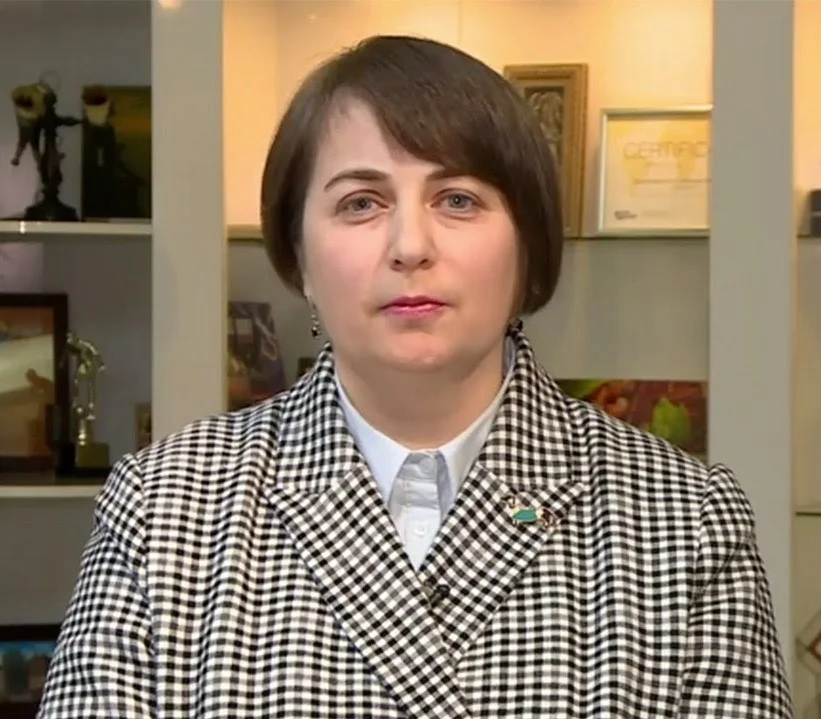 The first speaker – Tamar Kaikatsishvili reviewed the ongoing issues that the Department of Tourism works on for now together with the National Tourism Administration with the main focus being on organization and management of quarantine zones. At the same time, they are actively working on the anti-crisis plan. However, as Tamar Kaikatsishvili points out, post-crisis period when the state of emergency will be lifted is no less important. How the region will be popularized on the target markets by that time, whether or not air and land borders reopen, what kind of policies will different countries have towards the Covid-19, how well local and international tourism will function, what will be the agenda of airlines, – according to Tamar Kaikatsishvili those issues are being processed and they are waiting for the recommendations from the relevant departments. First of all, they are waiting for the guidelines and working documents issued by the World Tourism Organization. She also noted that both local and international problems have effect on the tourism and economy. The government needs support from the private sector in order to address those problems. Therefore, it is important that public and private sectors cope with that global challenge together.
The first speaker – Tamar Kaikatsishvili reviewed the ongoing issues that the Department of Tourism works on for now together with the National Tourism Administration with the main focus being on organization and management of quarantine zones. At the same time, they are actively working on the anti-crisis plan. However, as Tamar Kaikatsishvili points out, post-crisis period when the state of emergency will be lifted is no less important. How the region will be popularized on the target markets by that time, whether or not air and land borders reopen, what kind of policies will different countries have towards the Covid-19, how well local and international tourism will function, what will be the agenda of airlines, – according to Tamar Kaikatsishvili those issues are being processed and they are waiting for the recommendations from the relevant departments. First of all, they are waiting for the guidelines and working documents issued by the World Tourism Organization. She also noted that both local and international problems have effect on the tourism and economy. The government needs support from the private sector in order to address those problems. Therefore, it is important that public and private sectors cope with that global challenge together.
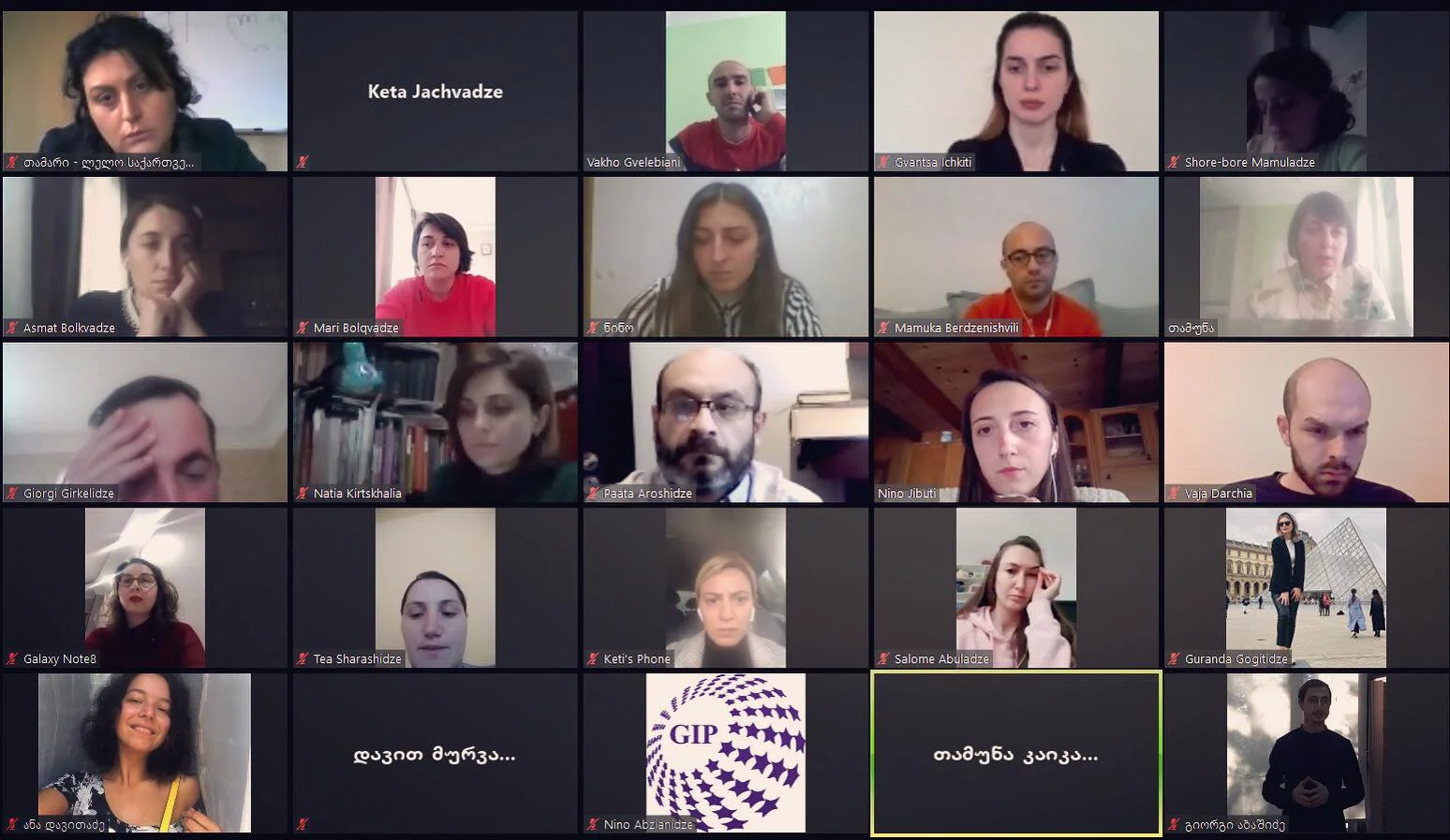 Here are some questions the participants asked to Tamar Kaikatsishvili: are the representatives of both small and big hotels also included in the government’s anti-crisis plan? Does the government together with the state tourism department discuss alternative priorities in case of the possible cancellation of the nearest tourist seasons? Would not it be better to use this period on the infrastructure projects and intensify their implementation? In response to the aforementioned questions Tamar Kaikatsishvili pointed out that due to the epidemiological situation and finances, adaptation is much needed and local tourism is one of the most effective instruments for that. Regarding the ongoing projects implemented by the department, she pointed out that all the projects, even the infrastructure ones, run as usual and they have not been halted.
Here are some questions the participants asked to Tamar Kaikatsishvili: are the representatives of both small and big hotels also included in the government’s anti-crisis plan? Does the government together with the state tourism department discuss alternative priorities in case of the possible cancellation of the nearest tourist seasons? Would not it be better to use this period on the infrastructure projects and intensify their implementation? In response to the aforementioned questions Tamar Kaikatsishvili pointed out that due to the epidemiological situation and finances, adaptation is much needed and local tourism is one of the most effective instruments for that. Regarding the ongoing projects implemented by the department, she pointed out that all the projects, even the infrastructure ones, run as usual and they have not been halted.
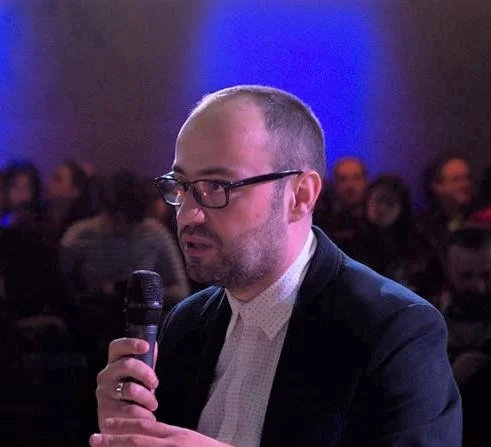 The next speaker of the discussion – Mamuka Berdzenishvili mainly focused on the restoration of trust among local tourists. By that he meant all the stages tourists cover while going from one point to another. As the first wave of tourists is going to be composed of the local tourists, we should be informed on how the government is planning to control prevention measures against the spread of Covid-19. Financial capabilities of the local tourism is also interesting. As Mamuka Berdzenishvili explained, social packages provided for the citizents by the government cannot be used to stimulate local tourism. Therefore, it is important how the local economy recovers. Small and medium sized businesses are big part of the tourism industry and they are very unstable at the moment. Those businesses are struggling more and more to maintain their positions on the market as the time passes. The main questions should be posed around the aforementioned issues.
The next speaker of the discussion – Mamuka Berdzenishvili mainly focused on the restoration of trust among local tourists. By that he meant all the stages tourists cover while going from one point to another. As the first wave of tourists is going to be composed of the local tourists, we should be informed on how the government is planning to control prevention measures against the spread of Covid-19. Financial capabilities of the local tourism is also interesting. As Mamuka Berdzenishvili explained, social packages provided for the citizents by the government cannot be used to stimulate local tourism. Therefore, it is important how the local economy recovers. Small and medium sized businesses are big part of the tourism industry and they are very unstable at the moment. Those businesses are struggling more and more to maintain their positions on the market as the time passes. The main questions should be posed around the aforementioned issues.
As Mamuka Berdzenishvili pointed out, while meeting with the Minister of Economy and Sustainable development of Georgia his main request was related to that same issue – namely, after small and medium sized businesses are allowed to reopen, they have to be able to recover in terms of tourism as they will be one of the firsts to be affected by tax obligations. The Tourism Institute that Mamuka Berdzenishvili represents requested from the state to ease tax obligations for those kind of businesses, that can be done through mediation with the financial instates or using other means.
Questions of the discussion participants mostly concerned the new initiatives aimed towards promoting Georgia. According to the participants, this is a good time for doing that as the relevant funds and projects already exist.
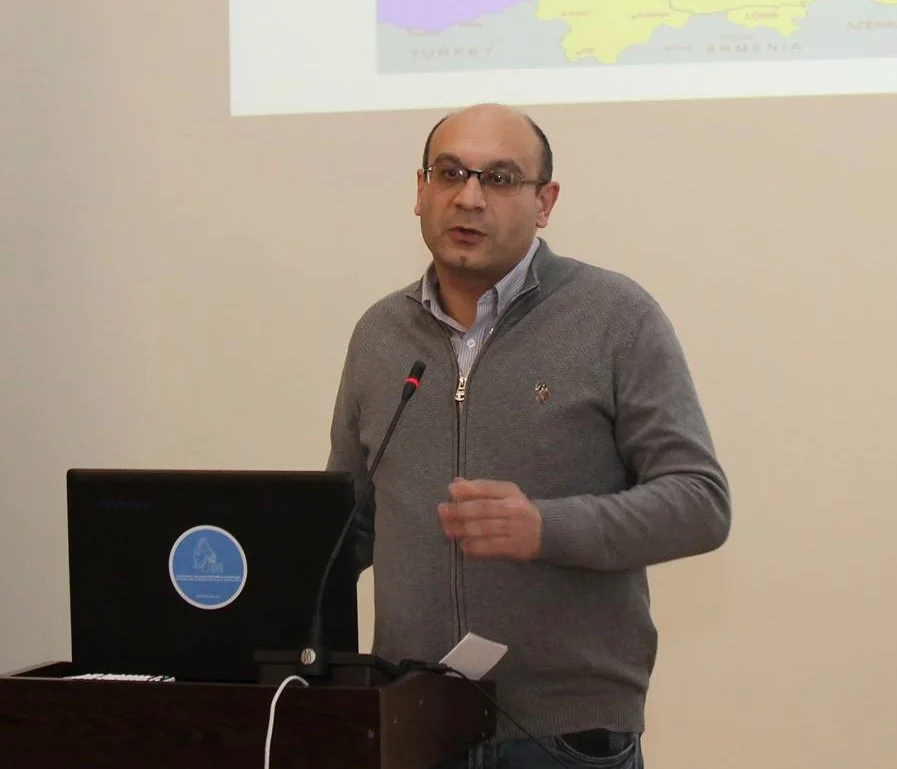 Another speaker of the discussion – Paata Aroshidze talked about the government’s anti-crisis plan and to what extent does it allow people to create better social conditions.
Another speaker of the discussion – Paata Aroshidze talked about the government’s anti-crisis plan and to what extent does it allow people to create better social conditions.
Paata Aroshidze pointed out that the anti-crisis plan proposed by the government can be divided into several directions: social packages, support for businesses, financial and healthcare sectors.
Within the aforementioned plan the state will ensure cultivation of the agricultural farmlands on the entire territory of the region. That is especially important for the mountainous Adjara. The farmlands which are difficult to reach and cultivate will also be ploughed. With regard to the agriculture sector, it is important for Georgia to become a producer rather than a consumer of agriculture products. The signs of that change are already visible.
“World economic crisis is unavoidable and we should face it with the development of small and medium sized enterprises so that the country could become a producer”, – added Paata Aroshidze.
Regarding the tourism, Paata Aroshidze highlighted that Georgia should position itself as a safe country in the following period.
The questions towards Paata Aroshidze mostly concerned revenue taxes, identification of self-employed citizens, and problems of the employees who have seasonal jobs.
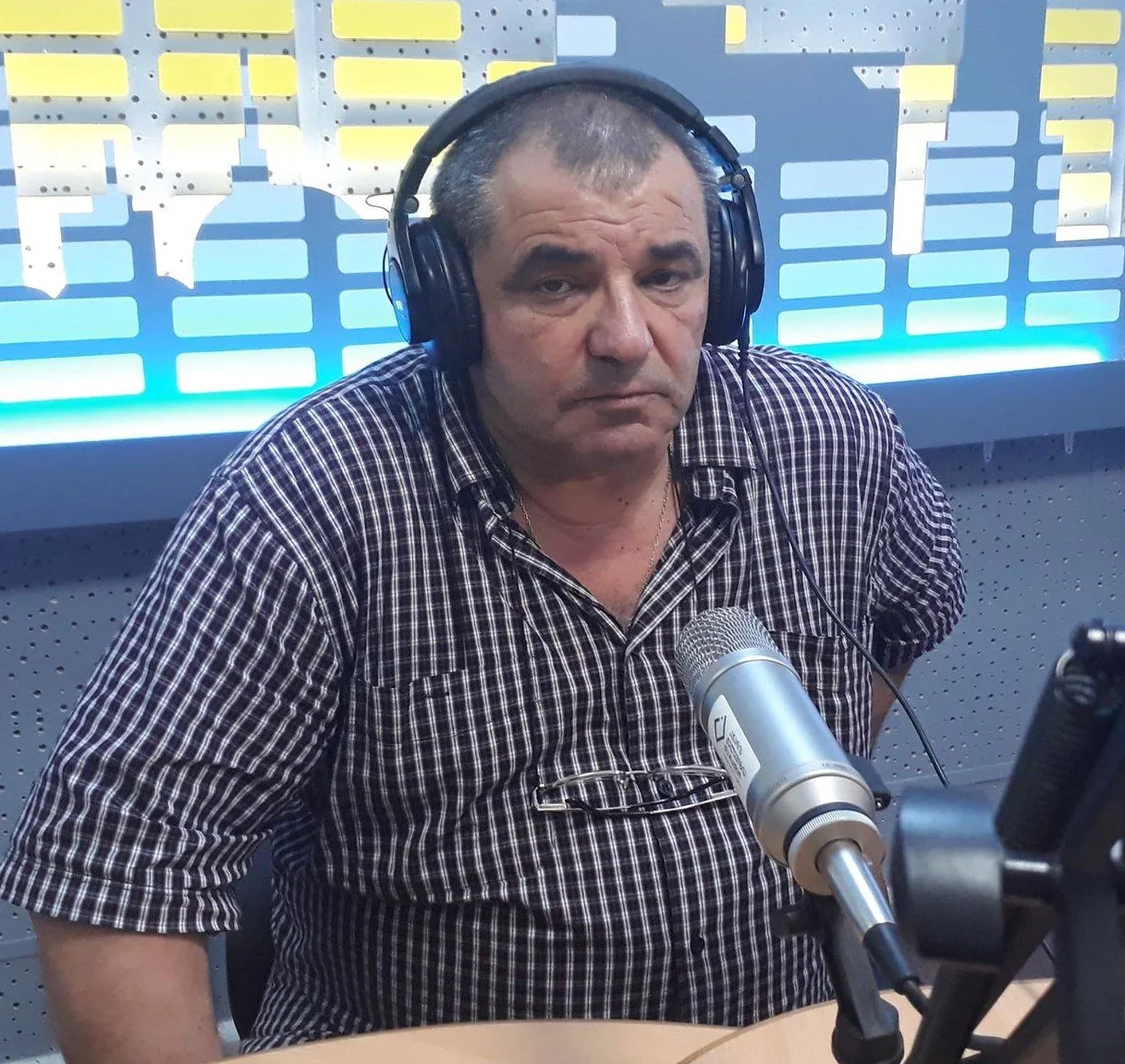 The next speaker of the discussion – Davit Murvanidze briefly overviewed the current situation from the medical perspective and talked about to what extent Adjara region managed to meet the Covid-19 prevention requirements and control the situation.
The next speaker of the discussion – Davit Murvanidze briefly overviewed the current situation from the medical perspective and talked about to what extent Adjara region managed to meet the Covid-19 prevention requirements and control the situation.
Davit Murvanidze thinks that the Georgian healthcare system and other institutes managed to cope with that difficult challenge quite well and the fact that Covid-19 has not spread widely in the country by far proves that point. However, he also pointed out that we cannot say that the pandemic is completely over unless the vaccine is created and approved.
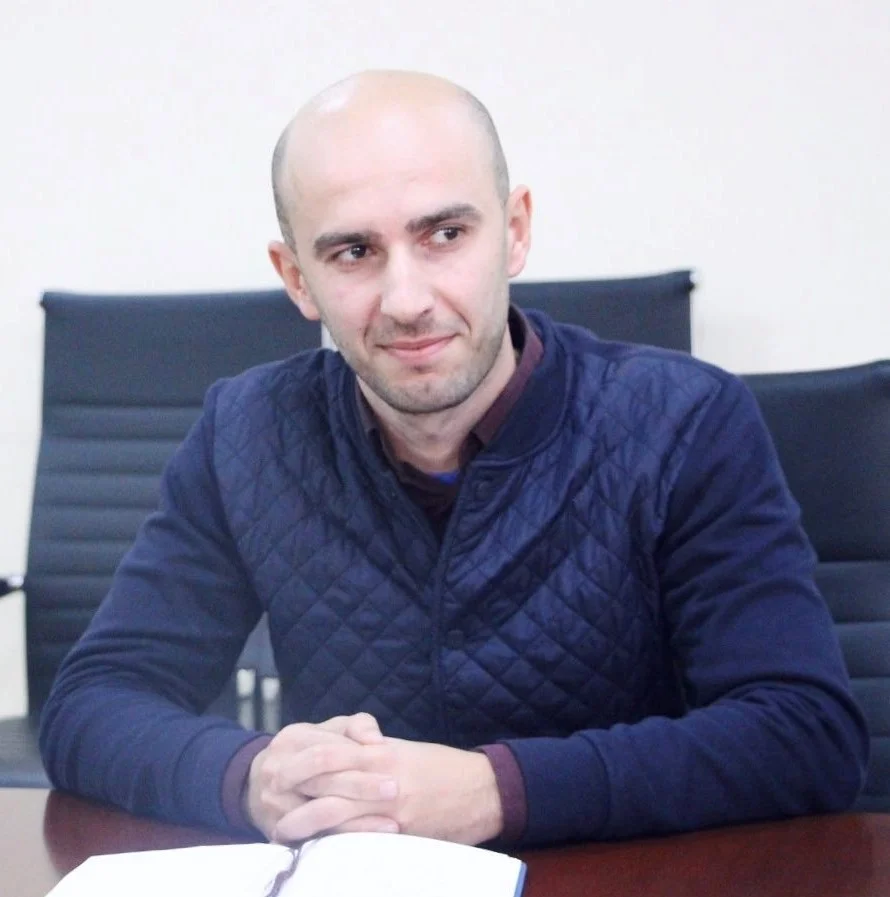 The last speaker of the discussion – Vakhtang Gvelebiani pointed out to the participants that the longer Guria region manages to stay a “green zone”, the sooner it will be able to go back to the normal conditions and further develop the tourism sector. Regarding the projects and programs on the local level, they are being modified in accordance with the current situation. For example, one project funded by the UNDP has already been launched in Guria – “Discover Guria”- which aims to promote local tourism by discovering hidden gems of Guria region, which are not widely known yet. As Vakhtang Gvelebiani highlighted in his speech, in addition to the ongoing projects, they actively work with different donor organizations on initiating new projects in Guria region, while taking the examples from the other municipalities into account.
The last speaker of the discussion – Vakhtang Gvelebiani pointed out to the participants that the longer Guria region manages to stay a “green zone”, the sooner it will be able to go back to the normal conditions and further develop the tourism sector. Regarding the projects and programs on the local level, they are being modified in accordance with the current situation. For example, one project funded by the UNDP has already been launched in Guria – “Discover Guria”- which aims to promote local tourism by discovering hidden gems of Guria region, which are not widely known yet. As Vakhtang Gvelebiani highlighted in his speech, in addition to the ongoing projects, they actively work with different donor organizations on initiating new projects in Guria region, while taking the examples from the other municipalities into account.
The discussion, which was held via online platform ZOOM, was moderated by the local project coordinator Lia Phutkaradze.
The project “Promoting Youth Transformational Leaders in Georgia” is implemented by Georgian Institute of Politics (GIP) with the financial support of USAID/Georgia and in partnership with CRRC Georgia. Space for Discussion will also be organized in two different cities, where ELS is implemented – Tbilisi and Rustavi (participants from Kvemo Kartli region).


